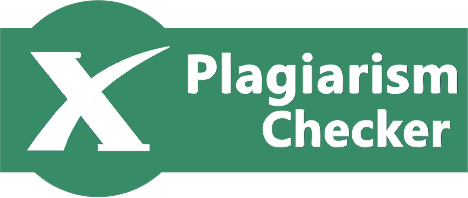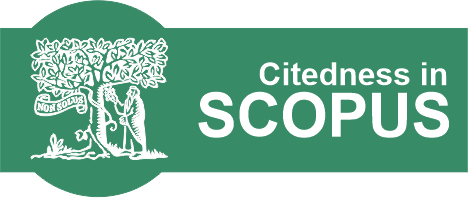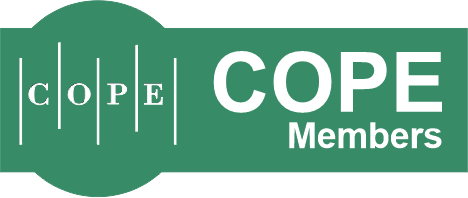The Influence Of The School Literacy Movement (Gls) On The Writing Ability Of Class Ix Students At Mts Muammar Gandi, Sidenreng Rappang Regency
Keywords:
School Literacy Movement (GLS), Writing Ability, Descriptive Text, Literacy SkillsAbstract
This study investigates the impact of the School Literacy Movement (GLS) on improving the writing abilities of Class IX students at MTs Muammar Gandi, Sidenreng Rappang Regency. Utilizing a pre-experimental design with a pretest-posttest framework, the research involved 26 students divided into regular and tahfidz classes. Data were collected through questionnaires, tests, and documentation. Statistical analyses reveal a significant improvement in students' writing skills post-treatment, demonstrated by higher scores in content, organization, vocabulary, grammar, and mechanics. The findings emphasize the effectiveness of GLS in fostering literacy and suggest its potential for broader educational application. This research contributes to the development of literacy-focused teaching strategies and highlights the importance of sustained efforts in cultivating student competencies for academic and personal growth.
References
Ahmad Syawaluddin & Nurhaedah. (2022). The Impact of School Literacy Movement (GLS) on the Literacy Ability of the Fifth Graders at SD Negeri Gunung Sari, Rappocini District, Makassar City.
Antoro, B. (2017). Gerakan Literasi Sekolah: Dari Penerapan ke Pembelajaran. Jakarta: Direktorat Jenderal Pendidikan Dasar dan Menengah.
Azriansyah, et al. (2021). Implementation Stages of the School Literacy Movement. Journal of Literacy Education, 5(1), 1-10.
Budiharto, P., et al. (2018). The Role of Literacy Stakeholders in Supporting the School Literacy Movement. Jurnal Pendidikan Indonesia, 7(3), 45-56.
Darmayanti, R., et al. (2023). Literacy as a Tool for National Development in the 21st Century. Journal of Educational Research, 12(1), 1-10.
Dewi Ariyani. (2022). The Influence of the School Literacy Movement on Elementary School Students' Interest in Writing. Journal of Literacy and Education, 5(2), 45-55.
Febriana, M. P. (2023). Collaborative Efforts in Literacy Development: A Case Study of GLS. Journal of Educational Development, 10(4), 102-118.
Gulo, W., & Sidiqin, M. (2020). Writing as a Tool for Communication and Critical Thinking. Jurnal Bahasa dan Sastra, 8(3), 23-30.
Harlen Simanjuntak. (2023). The Influence of the School Literacy Movement on the Ability to Write Poetry Texts in Class VIII Students of HKBP Sidorame Middle School, Medan. Jurnal Pendidikan Literasi, 7(2), 67-79.
Letidena, N., et al. (2023). PISA: Reflections on Indonesia’s Literacy Performance. International Journal of Literacy Studies, 14(2), 101-115.
Ministry of Education and Culture. (2016). School Literacy Movement Guidelines. Jakarta: Directorate General of Basic Education.
Nikmatur Rohmaya. (2022). Integrating Literacy into the 2013 Curriculum. Jurnal Pendidikan dan Inovasi, 6(3), 90-105.
OECD. (2013). PISA 2012 Results: What Students Know and Can Do. Paris: OECD Publishing.
Pradana, W., & Santosa, I. (2020). Hypothesis Development in Educational Research. Jurnal Penelitian Pendidikan, 10(1), 33-47.
Rahayu, I. (2016). Three-Stage Implementation of the School Literacy Movement: A Case Study. Jurnal Pendidikan Literasi, 4(2), 89-100.
Ramandanu, P. (2019). Participatory Efforts in Literacy Improvement: Insights from the School Literacy Movement. Journal of Community Literacy, 6(1), 15-24.
Resnani, S. (2018). The Benefits of Writing Activities in Enhancing Cognitive Skills. Journal of Writing and Communication Studies, 11(3), 201-215.
Suhandi, D., & Robi’ah, M. (2022). Multiliteracy Competencies in the 21st Century. Journal of Educational Innovation, 9(4), 56-67.
Suraya, A., et al. (2019). Literacy as a Character Development Tool in Schools. Jurnal Pendidikan Karakter, 5(2), 30-45.
Widiade, D. (2020). The Role of Literacy in Supporting Global Competitiveness. Jurnal Pendidikan Indonesia, 8(1), 12-20.
Downloads
Published
How to Cite
Issue
Section
License
Copyright (c) 2024 Nurcahaya, Sam Hermansyah, Ibrahim Manda

This work is licensed under a Creative Commons Attribution-ShareAlike 4.0 International License.


































